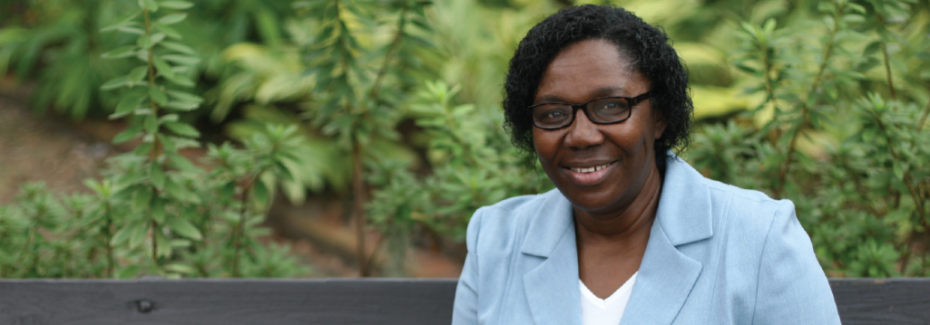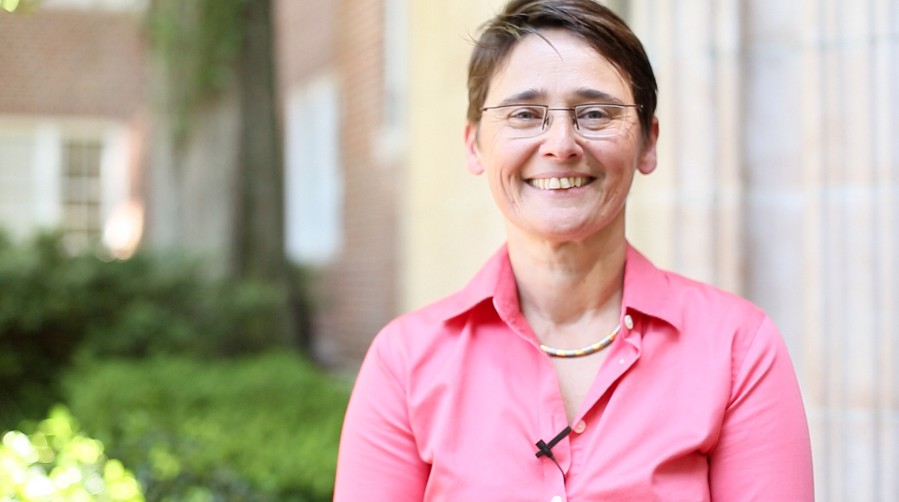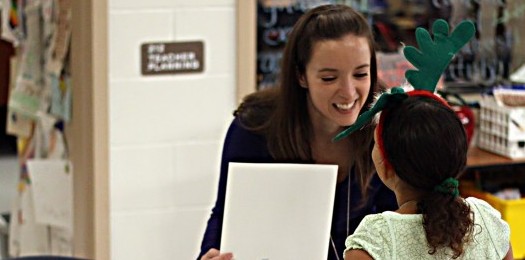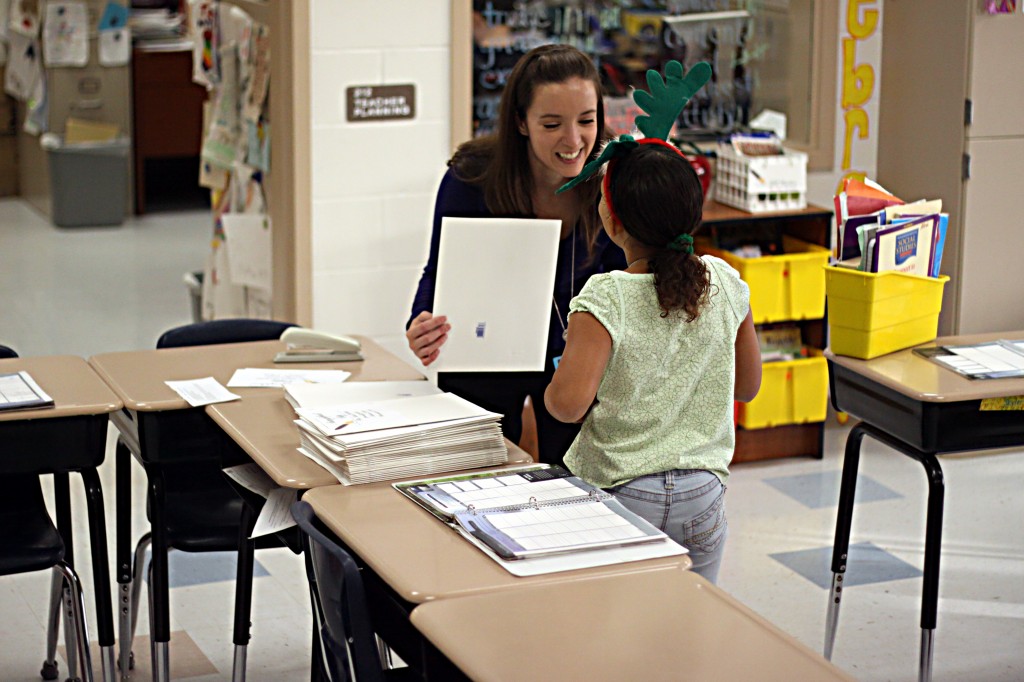Kenneth Noble and the hypocrisy of a nation pushing democratic educational ideals

It was 1945. WWII had just ended and segregation was still in effect in American schools, when the U.S. government embarked on a mission to reform the Japanese education system to a democratic state. A group of 27 committee members, all educators, were pulled together to help. It took one member, the only black person on the team, to point out how our own education system was far from equal.
The School of Teaching and Learning’s doctoral student Kenneth Noble explores this paradox with his award-winning paper, “A More Meaningful Democracy than We Ourselves Possess.”
The idea started while in Dr. Sevan Terzian’s doctoral research seminar in Social Foundations of Education, where students ask an original question with hopes to produce a published research piece. In just two sentences, a class reading had barely touched on the mission, but it was enough to catch Noble’s interest.
Of even greater interest to Noble was the single black committee member, Charles S. Johnson, who helped develop the Harlem Renaissance. Delving into research, which included traveling to Tennessee to dig through archived papers written by Johnson, he started to uncover a clear picture of what was happening at the time.
Johnson questioned how the U.S. government could promote ideals that it did not practice, with race issues back home. Using this discrepancy as a vehicle, Johnson pushed for change.
For more information, read Noble’s full essay, published in the History of Education Quarterly’s Nov. 2014 edition, or browse through the interview excerpts below:
[accordion]
Why did the U.S. government target the Japanese education system for reform?
It was just one part of a larger operation to promote democracy during U.S. occupation in Japan. The idea was that the school system reflected a lot of nationalistic ideals, in opposition to democratic ideals. Part of the goal to kick out language that was ultra-nationalistic, and to prevent a Japanese communist ally in the Soviet Union. [/accordion]
[accordion]
Do you still see inconsistencies today between American ideals and its education system?
As a grad student, one of the difficulties I’ve had is reconciling the present with the past, and I think all historians have a difficulty with that. When I was looking at this discrepancy at that time, it was very clear. It was glaring. Obviously American education wasn’t supporting any kind of equality. There were many limitations.
But it’s harder to draw a straight line from those inconsistencies to today.
Honestly my background is privileged. The school I attended was in a wealthy part of Mississippi. I never experienced any kind of discrimination. But when I taught at the high school school in South Carolina, I would see how other schools had newer technology, while our school had textbooks that were falling apart. When you even compare resources, not every school is treated the same.
Especially when you’re looking at a standardized test, how can we expect all students to perform at an expected high level when the inputs that we’re giving them – the resources, even teacher pay – are different, or when the resources aren’t there? [/accordion]
[accordion]
What in your program has helped you with your research?
At the graduate level in Curriculum and Instruction, studying critical pedagogy and Dr. Dorene Ross’ course on race, poverty and other educational issues helped.
My background in history led me here: I knew about the reform that was happening, but not that education was a part of it. I learned about the education mission in Dr. Terzian’s seminar course in social foundations. Something we read mentioned it in two sentences. I just locked onto them and then dug.
I focused on Japan because not as much had been written there. [/accordion]
[accordion]
Did your interest in this paper topic stem from teaching in an underserved community?
I taught at an underprivileged school and I was attracted to the issues. There are limitations to opportunity that many individuals have in education that really limit a large set of the population.
It’s why I was interested in the work of Charles Johnson. [/accordion]
[accordion]
Tell me about the research process.
A lot of it was sort of a narrowing down process. One way to make a topic relevant is to make historiographical connections, to answer why this is important. I found the purpose of the mission, who was involved, and I found the full report from the mission. (The whole committee went there for a month, and they’re government officials. That’s what they do, they make reports.) From the list of contributors, I started researching who they were. I believe all of them were in academia. Then I was interested in looking at the implications of the mission.
Even without Johnson, this mission itself doesn’t really match up with what was going on in America at the time. I think what makes it so interesting with Johnson is that he uses that as a vehicle to promote equality in education. It adds a whole other layer to this story.
Once I learned about Johnson, it was a matter of digging into the archives. I went to Fisk University in Nashville, where Johnson was a professor and president, and where his papers were. I found his book chapters and pulled info from there. I was there for a few days, which wasn’t a lot of time, but I was emailing the librarians back and forth before I even went up there. They already had the boxes pulled for me.
There are other histories written about the mission from the Japanese perspective. I read the ones I could read in English. One is a study on the Japanese textbooks and how the language has changed, removing language with nationalism and replacing it with more democratic language. Others looked at structural changes to education, or what the Japanese did or didn’t implement.
On the American side though, focusing specifically on Johnson, that’s not something that had really been explored. So that left me my space to explore. [/accordion]
[accordion]
How can we improve education today?
The focus on standards and accountability is misplaced. If we want to improve education, too much focus is placed on the outputs to fix the achievement gap, but I think that politicians and powers that ultimately dictate what we do in schools are not looking at the inputs. Providing adequate resources, racial and socio-economic inequalities. If those aren’t fixed, then those problems aren’t going to be fixed.
Dr. Ross’ class covered this. We called it the opportunity gap, not the achievement gap. If you fix the opportunity gap, the achievement gap will follow. Focusing on more testing will keep the same cycles going. There’s a lot of teaching to the test. A lot of teachers feel pressured into doing that.
In my view of history, you can’t teach it with a standardized test, because history is not meant to be taught or evaluated through multiple-choice. History is to be discussed, talked about, written about, reflected on. If we don’t that, the students aren’t really learning much. They’re just learning trivial facts and dates. They might do well at a trivia night, but they’re not really doing any questioning, they’re not doing any critical thinking.
The way, in my experience, that history should be taught – and it’s the system that hampers this — is we should be asking: What historical perspective was used to ask that question? Are we considering the perspective of poor farmers vs wealthy industrials? Because in A, B, C or D, we’re not asking that. [/accordion]
[accordion]
While at UF, have any of your perspectives on education changed, or developed?
From a pedagogical standpoint, from teaching, yes. I teach a History in Education class here, and what I learn from my Curriculum and Instruction professors is from the way they conduct class, how they try to engage students, different discussion protocols to get us talking, different ways to approach a reading. That is something that I’ve changed in how I taught. My first semester here, I pretty much did straight lecture, and that’s boring. But that’s what you find in most history classes. Thinking back to my experience in undergrad and masters, that’s how it was: just lecture, someone talking at you.
Education classes aren’t structured that way, at least in my experience here at Florida. There’s no separation: we’re sitting in a circle, or we’re sitting in groups. I try to apply that. I do lecture from time to time because it is necessary, but I try to incorporate readings or activities.
I have one where they pick out a significant quote or idea, and they team up with a partner and just talk. They get to pick what to talk about. After that we open up discussion for the whole class. When we do that, most of the time they already hit all of the main points.
I work as a guide, but I let them direct as much as possible. Another activity is where students can bring something in to teach a history-related topic. It allows the students to take some control of the class itself.
A lot of that I’ve pulled from Curriculum and Instruction. The professors here, that’s how they teach. [/accordion]
[accordion]
What’s the most exciting part of the research you’re doing?
Part of the reason why I chose to study the history of education, with my interest in history, is that I was always troubled with the questions: “How can we use history today?” and “How is it relevant beyond just learning about the past?” I think by looking at the connection between history and education, I find that learning from the past can help inform the perspectives on current educational problems.
What’s exciting to me about what I do, is that maybe in some way I can affect change. Maybe even in educational policy. Perhaps somehow my research can contribute to bettering education in some way. That’s exciting to me.
And then history is cool, I just like learning about the past. [/accordion]

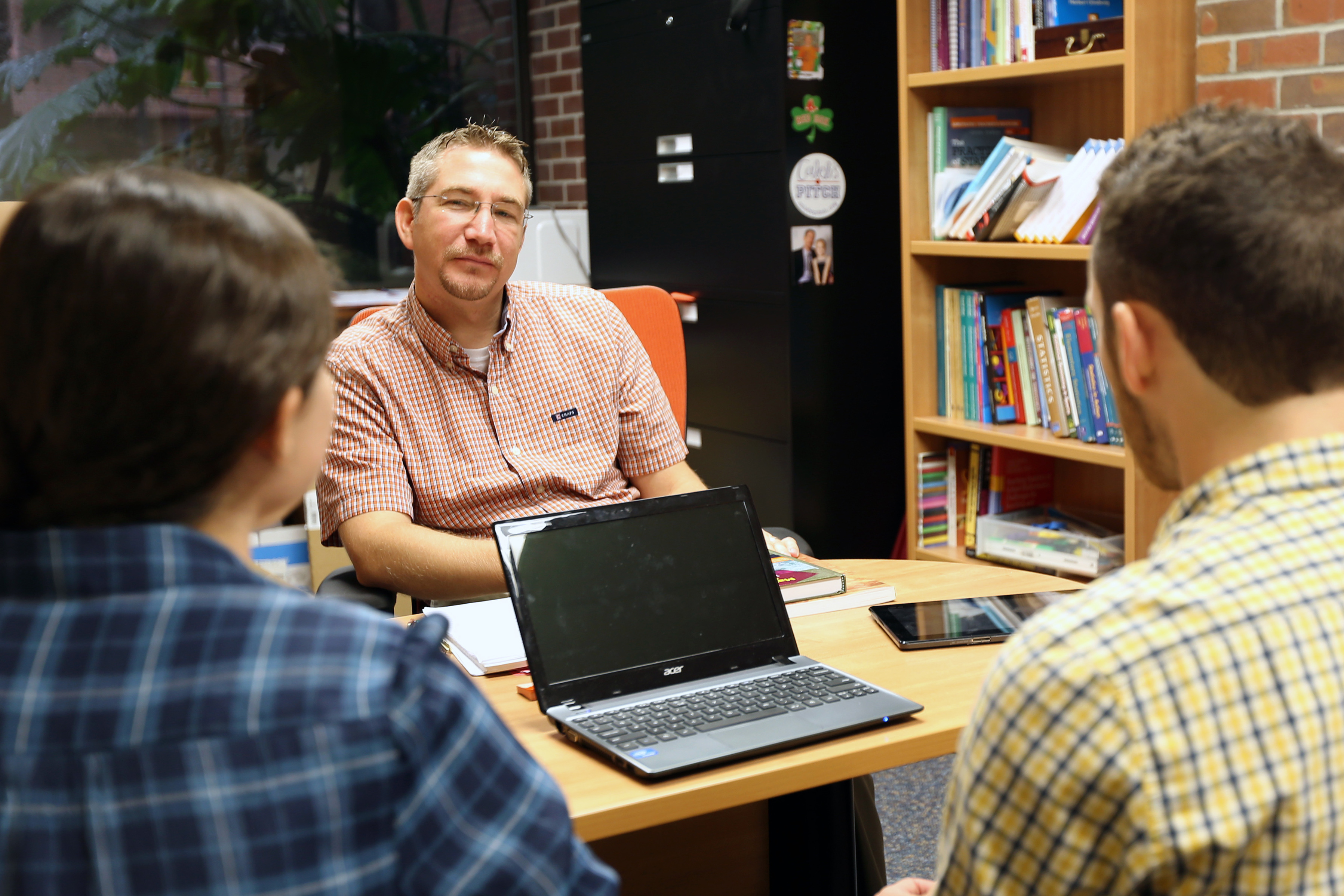


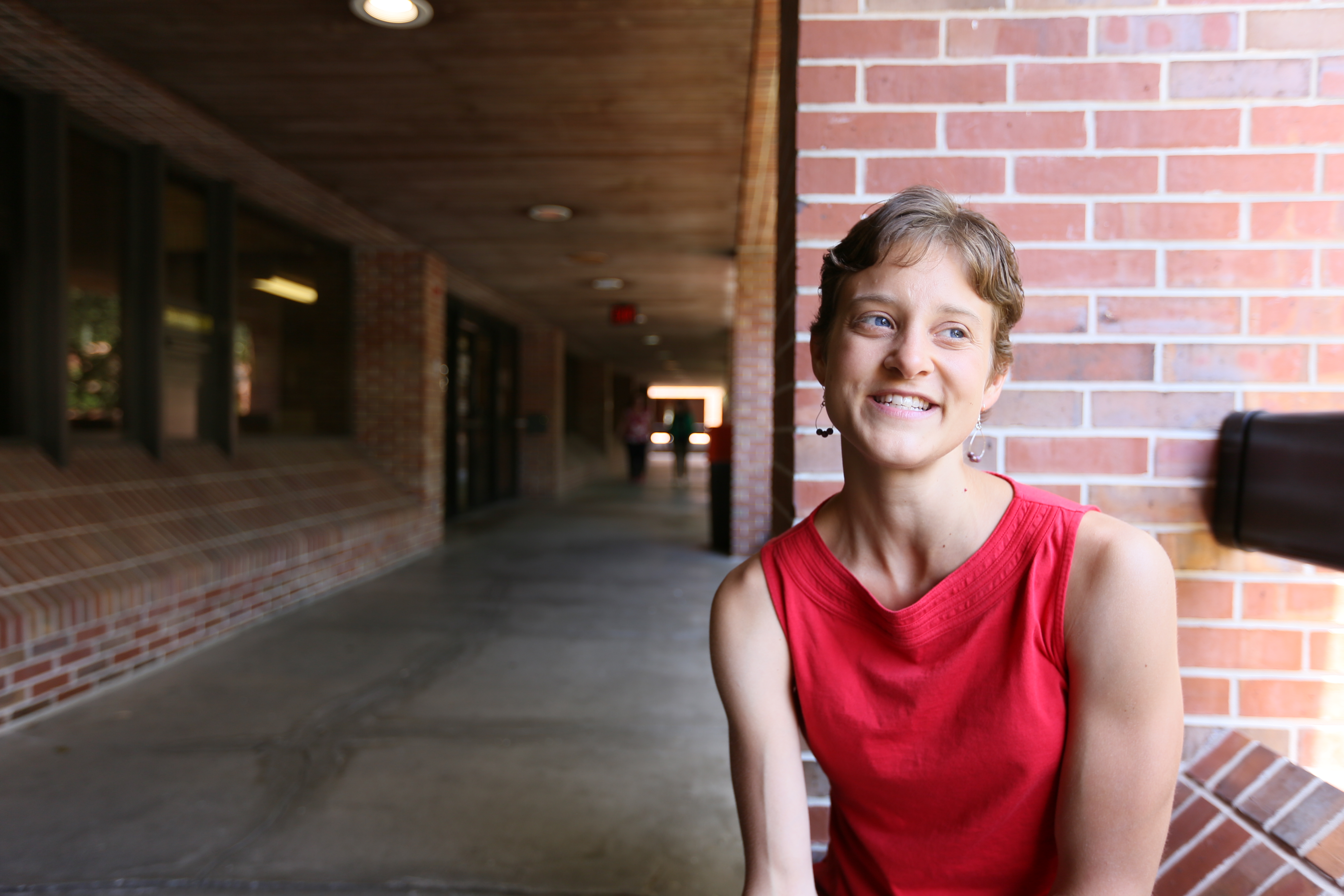



 Julie Brown, a UF doctoral fellow in curriculum and instruction, has been named as one of six Jhumki Basu Scholars by the National Association for Research in Science Teaching’s Equity and Ethics Committee.
Julie Brown, a UF doctoral fellow in curriculum and instruction, has been named as one of six Jhumki Basu Scholars by the National Association for Research in Science Teaching’s Equity and Ethics Committee.